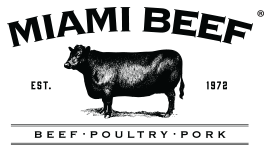

New Trade Deals With Japan Brings Growth Opportunity for American Beef
For Japanese consumers, 2018 marks the first moment in two years, that they have been able to access American beef products. The legislative ban on imports of meat products from the United States, has created an exciting opportunity for producers and processors to re-enter the Japanese market, which has a growing demand for red meat.
A new report from the U.S. Meat Export Federation (USMEF) shares that volume exports in 2017 to Japan increased in frequency by 7%, and in value by 19% in the first year after regulatory restrictions were removed.
Unfortunately, the uptick in imports of American beef also promoted an announcement of a 50% tariff on U.S. meat imports to Japan. The USMEF and other agencies worked promptly to negotiate with the Japanese government, to ease the tariff, and the trade experts anticipate that the increased rate will be dropped to approximately 38%, to balance consumer demand and affordability.
The $375 billion-dollar trade deficit between China and the United States has impacted American beef producers, as talks continue about tariffs in other export classes.
Japanese Consumer Demand for American Beef
Japan is the world’s second largest beef importer by value, and it was once the leading buyer of all American beef products, at a rate of $1.6 billion dollars per year, before the first restrictions on imports began, in 2003. The first moratorium was implemented during the international outbreak of bovine spongiform encephalopathy (BSE), also know as ‘mad cow disease’. During the incident, the domestic beef production in Japan fell dramatically, while consumer concern over the safety of red meat products suppressed purchase demand.
Raising cattle in Japan is expensive, and the country relies on international importers to provide products to meet the rising demand and affluence of Japanese consumers. In Japan, household income has continued to grow slowly, but households in the country are still among the wealthiest in the world. And they are willing to pay a premium price, for specialized cuts of beef, both grain and grass-fed.
American Beef Producers Poised to Surpass Australian Suppliers
In the United States, American beef producers are excited about the opportunity to regain their position as the largest beef exporter to Japan. Although trade agreements between Australia and Japan give Australian producers a price advantage with lower tariffs, in the first two months of 2017, beef imports from Australia accounted for 47% of total purchases. American beef exporters supplied 44% of total purchases in Japan, according to the Japanese Agricultural Ministry.
The price of locally raised Wagyu beef in Japan has skyrocketed, due to declining production. Wagyu beef producers in Japan utilize grain feed, which is identical to the American method of production. Australian beef exports are primarily from grass-fed sources.
The Japanese restaurant sector is booming, which is leading the increased demand for more affordable cuts of meat, as an alternative to Wagyu. In the first fiscal quarter of 2017, Japanese frozen beef imports from all nations totaled 89,253 tons, which marked an increase of 17.1% from 2016 sales. Japan sourced 37,823 tons (an increase of 25%) in that period, from non-EPA countries. Japan has protected Economic Partner Agreements (EPAs) with Australia, Mexico and Chile, for frozen meat products.
American beef producers are encouraged by increased demand, and the growing value of Japanese beef exports. From January to May of 2017, U.S. beef exports were valued at $731 million dollars, which marked an increase in 32% from the same period in 2016. The United States shipped 123,290 tons of beef to Japan, in the first quarter of 2017. International beef exports from the U.S. to all countries, was 497,323 tons.
While trade talks from Japan are geared toward protecting the market value and demand for domestically produced Wagyu beef, growing population needs and the pressure for specific cuts at a more value conscious price-point, will help U.S. beef producers and processors meet demand, as a safe and high-quality beef provider.
